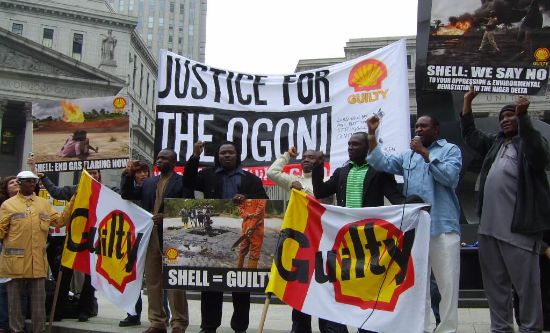
On 25 February 2023 presidential elections were held in Nigeria. These were marked by voter intimidation, violence, murders, arson, racism and tribalism, fraud, incompetence, logistic and technological failures, vote-rigging, vote-buying and bribery. Bola Tinubu of the ruling APC party was declared the winner with 8.9 million votes, Atiku Abubakar of the PDP came second with seven million votes and his former vice-presidential running-mate Peter Obi, now representing the Labour party, came third (6.1 million votes). It had the lowest turnout (25.7%) of any election since the restoration of ‘democracy’ in 1999. Lawsuits have been filed at the Supreme Court to declare the results invalid and opposition parties have demanded the resignation of the chair of the country’s electoral commission. The reality is that Nigeria’s so-called ‘democratic’ election was little more than a tussle between drug barons and thieves; and the ultimate winners were the multinationals given free rein to continue plundering Nigeria’s land and natural resources.
President-elect Tinubu is a known drug-baron. While a Nigerian senator living in Chicago between 1989 and 1991, Tinubu deposited into US banks accounts the proceeds of white heroin distribution amounting to nearly $2m. After these funds were seized by the US in July 1993, Tinubu reached a settlement, forfeited up to $460,000 and had the case dismissed within months. Opposition candidate and former vice-president Atiku is a known ‘oil bunkerer’ who was exposed by Wikileaks in January 2009 as the chief ‘manager’ of the oil bunkering business run by the family of former president Umaru Musa Yar’Adua. Oil bunkering is the tapping into and theft of crude oil from oil pipelines which began in the 1970s, and has now reached astronomical levels (600,000 barrels per day). A 2010 US Senate report said Atiku brought $40m into the US while vice president, including at least $1.7m in bribes paid by the industrial technology giant Siemens. All three main candidates are free-market capitalists.
Small wonder then that Britain and the US rushed to congratulate Tinubu on his victory. British and US imperialism have strategic interests in Nigeria and west Africa and hence, under cover of fighting terrorism, continue military and police cooperation with Nigeria’s barbaric security forces to secure the region’s natural resources. Nigeria is also a source of healthcare workers recruited to help plug labour shortages in Britain (13,600 in 2022). Despite massive resources, nearly two thirds of Nigeria’s population (133 million people) continues to experience acute poverty; unemployment was 33% in 2022 and the majority of people lack access to healthcare and education. Meanwhile, Nigeria remains racked by pervasive violence and insecurity perpetrated by terrorists and bandits in collusion with politicians, police and security officials.
Shell refuses to clean up
The Anglo-Dutch oil company Shell, which has operated in Nigeria since 1937, is responsible for massive and environmentally destructive oil spillages in the Niger Delta where most of the oil is pumped. A 2006 WWF report estimated up to 1.5 million tons – 50 times the amount released in the Exxon Valdez tanker disaster in Alaska – had been spilled in the delta over the past half century. Nigeria admits to 7,000 spills between 1970 and 2000 and Shell reported an average 175 spills annually, while environmental activists claim 300 spills annually. The majority have never been cleaned up. Shell and the government continue to avoid independent monitoring and keep key data secret. In 2011, the UN environmental programme reported it would take $1bn and 30 years to clean up Ogoniland, in the Niger Delta; work only began in 2019. Mass protests in 1993 by the Ogonis were brutally crushed by the government with Shell and British government collusion, and led to the judicial murder by hanging of the ‘Ogoni Nine’ led by Ken Saro-Wiwa. Shell is itself involved in the oversight of the clean-up project. Former Shell employee Phillip Shekwolo is also a director in the Hydrocarbon Pollution Remediation Project which is operating the clean-up. Stakeholder Democracy Network reports that independent testing of areas certified as ‘cleaned up’ had levels of contamination above permitted levels and twice what Nigerian labs were reporting. Shell’s Executive Vice President in Africa, Ann Pickard, boasted in 2009 of having representatives ‘seconded’ into major Nigerian ministries (Wikileaks US embassy cables 20 October 2009) to keep tabs on their deliberations. Shell paid hundreds of millions of dollars to feuding militant groups and government security forces to protect its installations and helped fuel decades of conflict. Forces hired by Shell perpetrated atrocities against civilians, including unlawful killings and systematic torture.
Communities have had no choice but to take legal action. In 2015, 2,335 Bille community representatives in the Niger Delta filed claims in Britain against Shell, and in February 2023 a further 11,317 people and 17 institutions (including churches and schools) from Ogale brought further claims. All 13,652 people are seeking compensation from Shell for loss of livelihoods and damage. In January 2021, the Dutch Appeals Court found Shell responsible for harm caused by two oil pipeline spills in Oruma and Goi, ordering it to pay compensation and take measures to prevent future damage. In December 2022, Shell was found responsible for oil pipeline leaks between 2004-2007, and ordered to pay £13m to four Nigerian farmers and their communities in Oruma, Goi and Ikot Ada Udo, after a case brought by the Dutch division of Friends of the Earth. Shell frequently blames sabotage and oil bunkering for the oil spills, but a Dutch Zembla TV investigative report broadcast in December 2020 found that Shell employees deliberately arranged the sabotage with local youths to ‘pocket money from clean-up budgets’. Shell and the Dutch embassy were aware of the practices for years but did nothing. In 2021, Shell announced plans to leave the Niger Delta and move assets offshore, selling its onshore oil production and leaving other companies to clean up its mess. We support all those fighting to hold Shell to account and bring these oil gangsters to justice.
Charles Chinweizu




